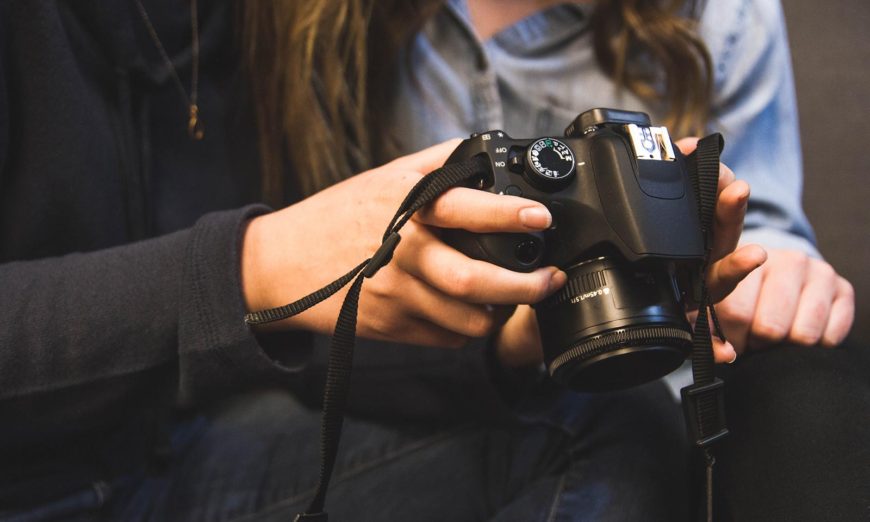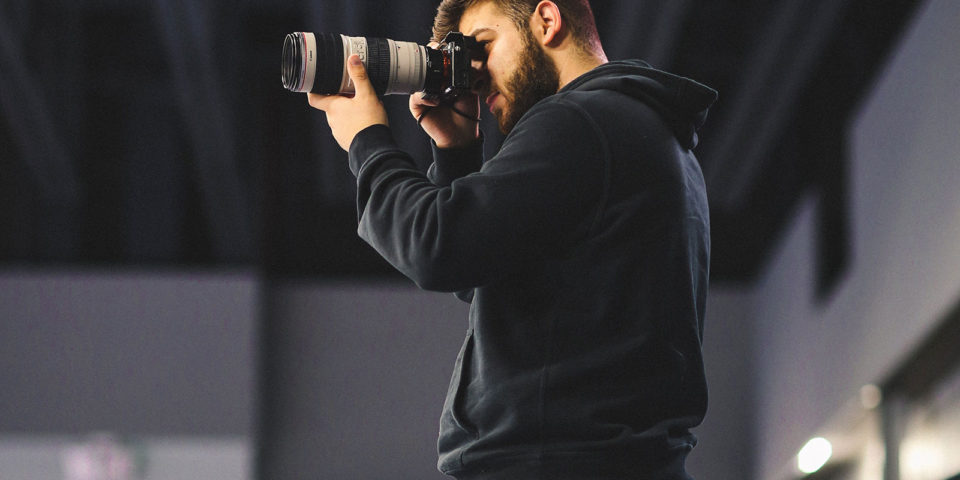Congratulations! A new camera is a wonderful thing. It doesn’t have to be brand new, it could be gently used, it could be handed to you from a family member, wherever it came from, you have it now. It could be a DSLR, or even a home security camera or even a dash cam from BBMC! So the next question is what do you do?
Keep It Simple
We’ll agree that there are literally thousands of videos on YouTube promising to make you the next great photographer. Let me save you hours and days by advising that while the intent may be pure, the information is often poorly presented and sometimes wrong.
Before going to YouTube, put your new camera in the ‘Full Auto’ mode. On most products that is a green marker in the exposure mode setting options. This will help you create excellent exposures with your equipment and settings right away while you are still learning, or developing skills with the three primary components of exposure. (If your camera does not have a ‘Full Auto’ mode, it will have a ‘Program’ mode.)
Do not be in a big rush to get to a semi-automatic mode or into the well of manual mode. Aim to capture great images while you are familiarizing yourself with your camera.
Build Skill Over Time
While I am a strong advocate for group hands-on training, I really recommend on-demand learning. You can do this on your computer, your tablet or your smartphone at your own convenience.
At Henry’s, we have online courses available with KelbyOne, and in my opinion, it’s the best in online photo and video training. You can choose a particular class, or a complete set of classes right here.
Use the Camera
You know how you always have your smartphone on hand? Get in the habit of always having your camera with you. You’ll never learn from the shots that you miss. Shoot a lot and be okay that you won’t like the turnout of everything that you shoot. Practice what you learn and give yourself little challenges and projects.
You could even consider joining a local camera club. Many groups meet regularly and offer tutorials and interesting speakers. Some are very competition-oriented, so be aware of the club’s goals before joining. Consider going on photowalks or signing up for workshops where you actually get to make photos as opposed to sitting in a chair watching someone else work (practice makes perfect!). Henry’s offers free in-store seminars throughout the year, so be sure to stay tuned to the Events page.
Equip Yourself Properly
Photography and videography are not about advertising a brand or how much you’ve spent on your camera. I would recommend ditching the nice strap that came with the camera in the box. While they are all pretty, they all tell others that you have an expensive camera, who made it, and sometimes what model it is. I understand that we are a very brand-oriented society, but you may be better served by a quality non-slip strap that allows you to carry your camera subtly and without a bunch of big letters and flashing lights.
Your new camera deserves a great bag. Be careful though, because bags come in all sizes and there is a natural tendency to overbuy. I’d recommend getting a small, lightweight bag that will hold a camera body, two lenses and a hotshoe flash and that delivers great protection. Obviously, you do not want a bag with a logo emblazoned all over it because this is both advertising and guidance for potential thieves of what is contained inside.
There are literally hundreds of different bags available from backpacks to slings to shoulder bags to messenger bags. You will have all kinds of choice. I suggest looking at a bag with thicker closed cell foam padding, moveable dividers, a water-resistant outer shell and a padded strap system that will work for you.
My personal daily go-to bags come from either Think Tank or Domke. Both companies make products designed by photographers for photographers and their bags are both subtle and highly functional. My first Domke bag is now 35 years old and still works perfectly despite plenty of real world wear.
Short Term Goals
Sometimes keeping a focus on your short term goals is more helpful. In addition to a good strap, consider some basic accessories to add to your camera bag:
- One or two lens pens
- A couple of microfiber cloths
- Clear garbage bag (to use as a rain protector)
- Polarizing filter (for sunny days)
- Hotshoe flash (for shooting people indoors)
I understand many people are skeptical of extended warranties. I recommend them in the case of camera bodies for the simple reason that most manufacturer warranties expire long before the camera becomes outdated.
I also know that a single out of warranty service inspection will cost more than an extended warranty. Since most folks upgrade every three to four years, you will be covered for the duration of ownership. Henry’s offers a service like this that is much more than an extended warranty called HELP. If your camera came from Henry’s either new or used and was a gift, you can pop into Henry’s and the store team will help you purchase a HELP plan that is right for you.
Find Your Inspiration
Some inspiration can be a wonderful thing. Head out to your local library or bookstore and check out Ansel Adams, Dorothea Lange, Paul Strand, Henri Cartier-Bresson and my personal inspiration, Alfred Eisenstadt. Look at the composition (layout of the image), the way the light and shadows fall, the story and the emotional content. Learning to see will help you really enjoy your new camera.


